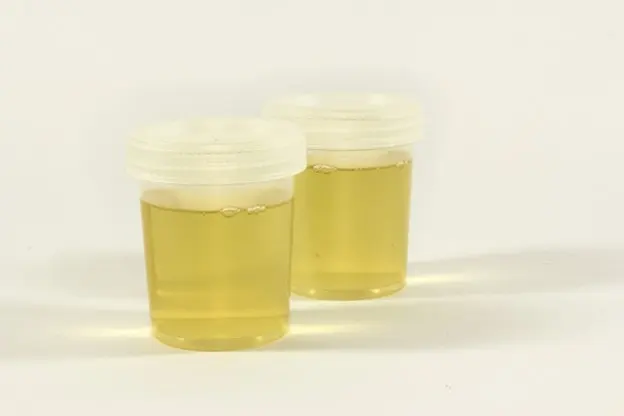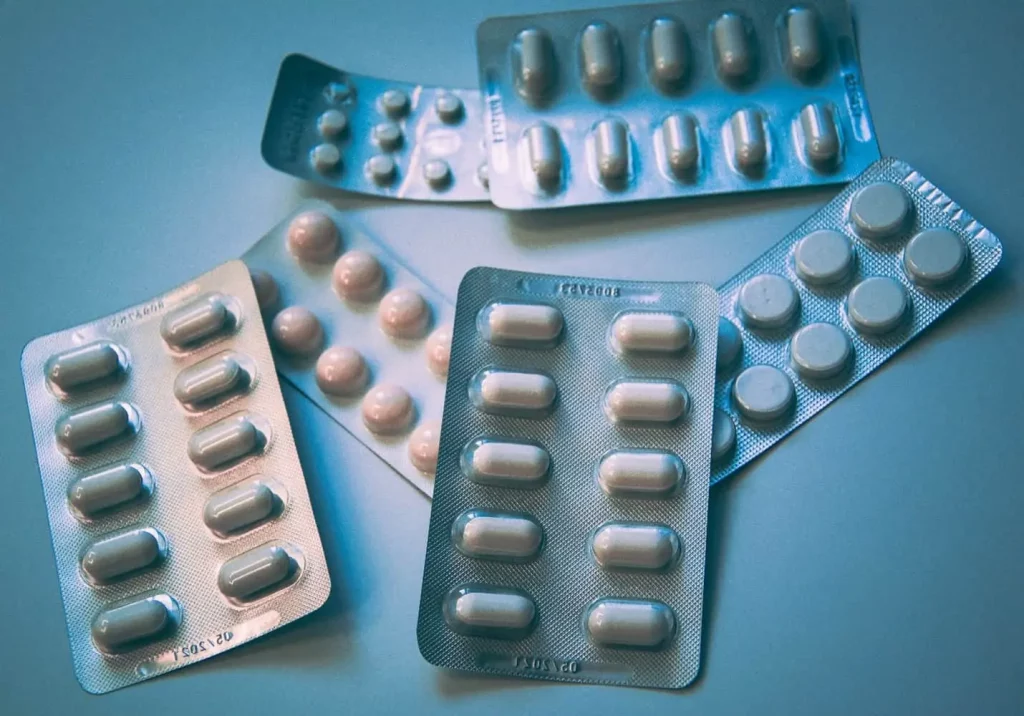Imagine this: you’ve got a big, important drug test coming up, and suddenly, your stomach rumbles with hunger. But wait! Before you raid the fridge or hit up your favorite fast-food joint, pause for a moment.
What you eat before that test could make all the difference between a smooth sailing pass and a rocky road of stress.
Get ready to uncover the secrets of pre-test dining, where we’ll dive into the world of “what not to eat before a drug test” – because passing that drug test is serious business.
So grab a snack (just make sure it’s on the approved list), settle in, and let’s navigate this culinary journey together!
Understanding the importance of pre-test dieting
Believe it or not, the foods you consume can influence the results of a drug test by altering your body’s metabolism and the way substances are processed and excreted.
It is, therefore, crucial to understand why your pre-test diet matters. While it is generally okay to eat before a drug screening, what you eat and the kind of drug test you’ll be taking are equally important.
Being mindful of your pre-test diet will improve your chances of passing the test.
How to prepare for drug screening
1. Hydrate!
Plenty of water in your system in the days preceding your drug test can help dilute your urine and reduce the concentration of substances that may trigger a false positive.
This is the safest and easiest way to flush out toxins and ensure accurate test results. While no amount of water is more than enough, be careful not to overdo it as excessively dilute urine may raise suspicion and warrant additional testing.
Aim for a balance by staying adequately hydrated without going overboard.
2. The importance of timing
Timing is everything. You have to nail the timing to ensure your body is ready to pass the test. But what’s the secret sauce?
It’s about when you eat. It’s imperative to give your body some breathing room to digest and process what you eat. Aim for a balanced and light meal a few hours beforehand rather than a massive meal before the test.
This will keep your energy up without weighing you down, as you will not be too stuffed or too hungry during test time.
3. Watch what you eat
While some professionals may advise fasting the night before your drug test, it is not completely necessary.
However, your testing facility will prep you for the drug screening and elaborate on whether fasting is necessary.
In cases where fasting is irrelevant, you gotta fuel up right. Think fruits, vegetables, lean proteins, and anything else that won’t throw your system into a frenzy. Prioritize citrus fruits and juices which are rich in Vitamin C and increase your urine concentration.
Nonetheless, there are some foods you should steer clear of as they have the potential to throw off your drug test. This leads us to the meaty stuff – what not to eat before a drug test.
How to reduce the risk of false positive drug test results
What not to eat before a drug test
Oftentimes we crave a delicious meal without the hassle of cooking, opting for the convenience of a takeout to satisfy our hunger pangs. Sound familiar?
Well, here’s the twist – while those restaurant dishes may tantalize your taste buds, they could pose significant risks of false positive drug test results.
Think about it – when you order food from your favorite restaurant, do you really know what goes into your meal’s preparation? Probably not. Most of these dishes are prepared with alcohol which burns off in the cooking process.
You wouldn’t want to consume such if you have a drug screening coming up. It is, therefore, crucial to have a dash of caution when choosing your menu item and inquire about its ingredients.
That said, the following foods may affect your drug screening:
1. Poppy seeds
While these tiny black seeds may look innocent, they contain trace amounts of opiates detectable in urine tests.
Poppy seeds come from the opium poppy plant used in making heroin and contain around 0.5 – 10 micrograms per gram of morphine and codeine.
Even a small consumption of poppy seeds sprinkled in bagels or pastries could result in a false positive test despite its opiate concentration being far from anything that may cause intoxication.
2. Hemp seeds and oil
Like their name and origin – Cannabis Sativa L. plant, these little guys contain traces of THC (tetrahydrocannabinol). This is the substance that gives marijuana its kick.
With the legalization of hemp products through the Agriculture Improvement Act of 2018, it is not uncommon to have hemp seed or oil end up in your diet.
A study conducted by the National Center for Biotechnology Information, where participants ingested foodstuff containing hemp seeds, reported false positive urine samples that were screened for marijuana.
Consequently, avoid hemp products to reduce the potential risk of THC exposure before the big test day.
3. Coca tea
A cup of tasty coca tea is like the forbidden fruit you should avoid putting in your body several hours before your big test.
If it is an integral part of your morning routine, you might want to consider other alternatives – try a smoothie this time round.
This delicious beverage is synthesized from coca leaves – the same plant cocaine is sourced from. Studies have proved that coca tea ingestion results in the detection of cocaine metabolites in urine samples that linger for as long as 20 hours or more.
4. Tonic water
That fizzy refreshing drink you might associate with gin can throw off your drug test results, all thanks to a little compound called quinine.
This particular ingredient of tonic water can sometimes trigger a false positive as it is commonly detected as the cutting agent of hard drugs such as cocaine and heroin – besides its use as an anti-malaria drug.
For this reason – its association with illicit street drugs – its presence in urine can raise an alarm about your drug test, leading to potential false positives.
5. Durian
The infamous durian is a prized ingredient of the traditional cuisines of many cultures in Southeast Asia. Despite its notorious odor and creamy texture, it symbolizes abundance and prosperity.
However, its reputation is not the only cause for concern. This tropical fruit can send your drug test results into a tailspin. This is attributable to the lingering “mouth alcohol” left after consuming a ripe durian fruit.
More often than not its BAC levels would throw off a breathalyzer alcohol test.
6. Pizza
Believe it or not, a slice of your favorite cheesy pizza might not be the best idea when you have an upcoming drug test.
Here’s why – pizza is loaded with ingredients that can throw off your test results faster than you can say “Extra cheese, please!”
First, let’s talk about the dough. This delicious base is packed with carbs that can mess with your body’s metabolism making it harder for it to process certain substances.
Next, is the cheese and sauce. The tomatoey sauce accompanying your pizza is rich in acidity, interfering with the measurement of homovanillic acid levels, a metabolite of dopamine.
Consequently, abnormal dopamine levels are indicative of ingestion of illicit drugs such as cocaine and meth, which inhibit dopamine uptake and cause its overstimulation.
And let’s not forget about the toppings. Whichever flavor of pizza you’re a fan of, its toppings bring a new set of challenges to the table. Spicy toppings increase the risk of gastrointestinal discomfort, affecting the absorption and metabolism of substances in your body.
All these can gear up for a surprise on your test day. It is, therefore, advisable to save the pizza party for after you’ve aced your drug test.
Medications likely to cause false positive drug test results
This guide is not only about “what not to eat before a drug test” but also about the pills you shouldn’t pop when prepping for a drug test.
They are:
1. Antibiotics
Certain antibiotics, such as quinolones and rifampin, have been known to cause false positives for opioids and cannabinoids. Yes, these little lifesavers can sometimes wreak havoc on your drug test results.
In case you’re on antibiotics at the time of testing, it might be helpful to give your doc a heads-up before the test.
2. Antidepressants
Some antidepressants can also lead to false positives. Drugs like trazodone and bupropion have been known to trigger false positives for MDMA or amphetamines.
Now this does not mean you should ditch your antidepressant dosage but it is sure worth double-checking with your healthcare provider as to when you should schedule your test.
3. Antihistamines
You know the allergy meds that save you from sneezing up a storm? Yes, the likes of cetirizine, Allegra, and Claritin can trigger false positives for benzodiazepines or hallucinogens such as PCP.
Therefore, if you’re reaching for over-the-counter allergy meds, please be aware of the potential consequences they may have on your test.
4. Painkillers
In the same breath, painkillers such as Tylenol or Advil can mess with your drug test results. Studies have shown that meperidine and tramadol trigger false positives for opioid screening.
This makes it crucial to consult a healthcare professional to find the best option that wouldn’t jeopardize your test if you’re in pain and need medication.
Myths and misconceptions of pre-test diet
There’s a lot of confusion about drug tests out there. You’ve probably heard rumors of what you should or shouldn’t do with an upcoming drug test.
But fear not as we will set the record straight and separate fact from fiction.
Myth #1: You can cheat a drug test by loading up on water. While hydrating is essential, too much water won’t magically flush out drugs from your system.
Myth #2: You should fast before a drug test. Skipping meals won’t increase your chances of passing a drug test. Fasting is not necessary unless instructed by your testing facility.
Myth #3: Strenuous exercise helps burn drug metabolites from your system. With today’s technology, even the smallest traces of drug metabolites in your system can be detected.
Myth #4: Caffeine causes false positives. The sophisticated lab equipment used in drug screening reduces the risk of mix-ups that were present with traditional testing methods.
What to do if your test results actually turn positive
If your drug testing takes an unexpected turn, do not fret. You can request additional testing to confirm the results and prove the absence of drug metabolites from your system.
Conclusively, it is crucial to stay informed and educated about your options. Do your research into medications and other substances you may have been exposed to before taking the test. Get acquainted with drug testing administration laws
Additionally, communicate effectively with your healthcare provider if you suspect the possibility of a false positive.


